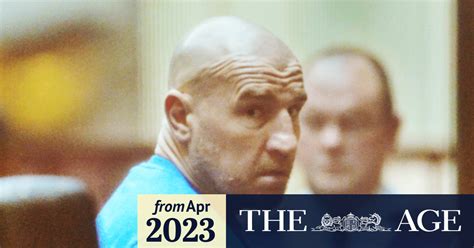Australia’s criminal underworld was thrown into a frenzy as Tony Mokbel, one of the most infamous gangland figures in the nation’s history, emerged back into society after spending 18 years behind bars. The story of his release captivated the public and media alike, shedding light on the complexities of organized crime and the legal system.
The Rise and Fall
Tony Mokbel, known for his involvement in Melbourne’s notorious gangland wars during the late 1990s and early 2000s, had been serving time in prison for multiple drug-related offenses. However, his case took a dramatic turn when revelations surfaced about his lawyer acting as a police informant. This revelation cast doubt on the validity of Mokbel’s convictions, paving the way for his potential release.
A New Beginning
After securing bail due to the promising prospects of his appeal, Mokbel wasted no time reacquainting himself with freedom. Stepping out onto the streets of suburban Melbourne for the first time in nearly two decades, he embarked on a journey filled with media scrutiny and public intrigue.
As news outlets swarmed around him like bees drawn to honey, Mokbel displayed a calm demeanor despite being at the center of a whirlwind of attention. Clad in black gym attire instead of his former lavish suits, he made no attempt to evade reporters or disguise himself—a stark contrast to his past life in hiding.
A Reunion with Family
One poignant moment that stood out amidst all the chaos was when Mokbel reunited with his loved ones. After spending time with his children and visiting his late mother’s grave—a touching gesture revealing glimpses of vulnerability beneath his hardened exterior—the gangland boss seemed to be seeking solace and connection after years of isolation.
Legal Battles and Uncertain Futures
Despite enjoying moments of freedom once again, Tony Mokbel’s future remains uncertain as he navigates a complex legal landscape fraught with challenges. His quest to overturn convictions tainted by the Lawyer-X scandal is not merely a fight for personal redemption but also serves as a symbol of justice under scrutiny.
As experts weigh in on Mokbel’s case, many acknowledge the strength of his appeal given the circumstances surrounding Nicola Gobbo’s double life as both lawyer and informant. The intricate web woven by legalities and moral ambiguities continues to unravel before our eyes, leaving observers intrigued by what lies ahead for this enigmatic figure.
In conclusion, Tony Mokbel’s reappearance marks not just a personal milestone but also reignites debates about crime and punishment within society. As he treads cautiously along this newfound path outside prison walls, only time will tell whether redemption or retribution awaits him at journey’s end.

